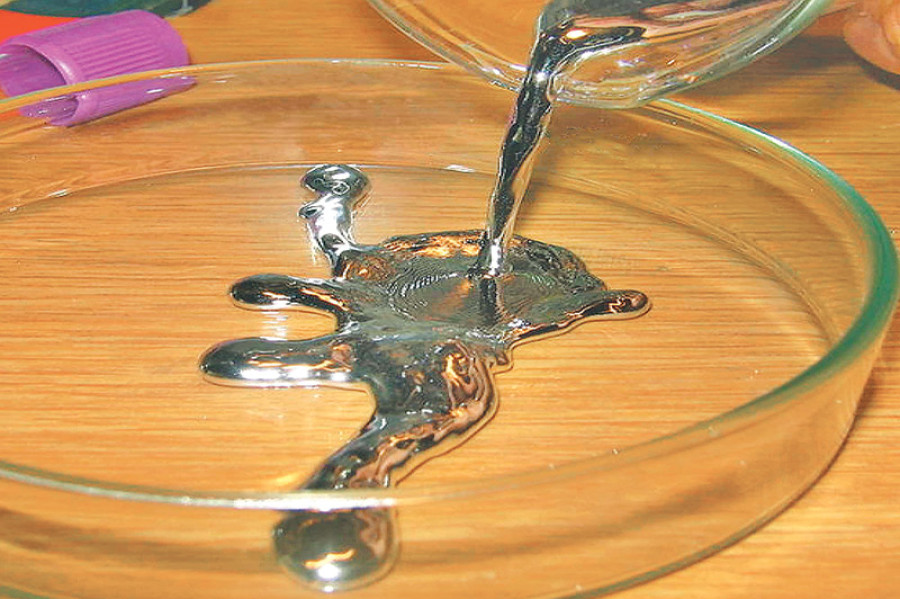Miscellaneous
Govt’s ratification delay raises fears
Nearly four years after signing a global convention aimed at protecting human and environment from harmful effects of mercury, the government is still unsure of ratifying it.
Chandan Kumar Mandal
Nearly four years after signing a global convention aimed at protecting human and environment from harmful effects of mercury, the government is still unsure of ratifying it.
Nepal had signed the Minamata Convention on Mercury in Japan on October 10, 2013. With 128 signatories, the convention will come into force from August 16, 2017. Out of them, 73 countries have ratified it and become a party.
Nepal, which has also been facing mercury related hazard for a long time, remains undecided about ratification.
“As a signatory, we must ratify the convention. However, we cannot say exactly when we are going to do it,” said Bipin Rajbhandari, senior divisional engineer at the Environmental Standard and Monitoring Section under the Ministry of Population and Environment (MoPE).
Rajbhandari, who is also the focal person from Nepal overseeing the convention, said the ministry was working on it. “The file has been forwarded to the foreign ministry. Ratifying takes time as it has to be passed by Parliament,” he added.
However, experts have doubts that the government has done anything substantial neither to ratify the convention nor to control the widespread use of mercury in the country.
Ram Charita Sah, environmental scientist and executive director with the Center for Public Health and Environmental Development (CEPHED), insists the country needs to endorse the convention soon to exploit benefits from the international community in the fight against mercury hazard.
“Any delay in ratifying the convention can deprive Nepal of the technical and financial support it could otherwise gain,” cautioned Sah, adding, “Nepal cannot address mercury problems that we already have. We neither have technical know-how nor resources to tackle them. Ratifying the convention and get assistance from the international community seems the only way out for us to tackle the mercury menace.”
Mercury and its compounds, used in various products and processes, are highly toxic and can have adverse effects on human health and overall environment.
Several studies have proved presence of mercury in human body and environment in Nepal. A study conducted by CEPHED in 2012-13 showed mercury in fish of Phewa Lake. Similarly, another CEPHED study has shown even people from fishing community are affected due to exposure to mercury, a heavy metal harmful to health.
According to Sah, eight out of 15 Majhi community members were found to have mercury contamination far higher than permissible levels—1 ppm, set for fish consumption.
However, experts say there is no safe level of mercury as any amount intake is damaging to health.
Workers engaged in metal plating business are the most vulnerable group. A 2017 CEPHED study reported that more than 75 percent women metal plating workers had mercury levels more than 1 ppm. Even dentists and nurses are at risk of mercury exposure when they do filling with mercury amalgam. A study conducted among 50 dentists has concluded that most of them were exposed to mercury, which attacks human nervous system.
“We have a plenty of studies that proved mercury has become a major health hazard in our country. However, the government bodies are not taking the issue seriously enough even as the common public are at high risk,” said Sah.
In 2013, the Ministry of Health had decided to impose a blanket ban on import, purchase and use of mercury in the health sector.
The government authority admits lack of monitoring drive to minimise the use of mercury and its compounds.
“We have not gone out especially for mercury monitoring as we lack resources and trained manpower,” said Rajbhandari.
The first meeting of the Conference of Parties (COP1) to the convention takes place from September 24-29 in Geneva, Switzerland. The meeting is set to seek a ban on new mercury mines, the closure of existing ones, and the cutting down of mercury use in products and adapting controlling measures for its emission in environment, among other provisions.
MoPE representatives are likely to participate in the conference entitled ‘Make Mercury History’, but without ratification, Nepal cannot take part in any decision making process.
“It’s high time that we ratified the convention, which would avail us with assistance from the convention secretariat,” said Sah.




 9.89°C Kathmandu
9.89°C Kathmandu











